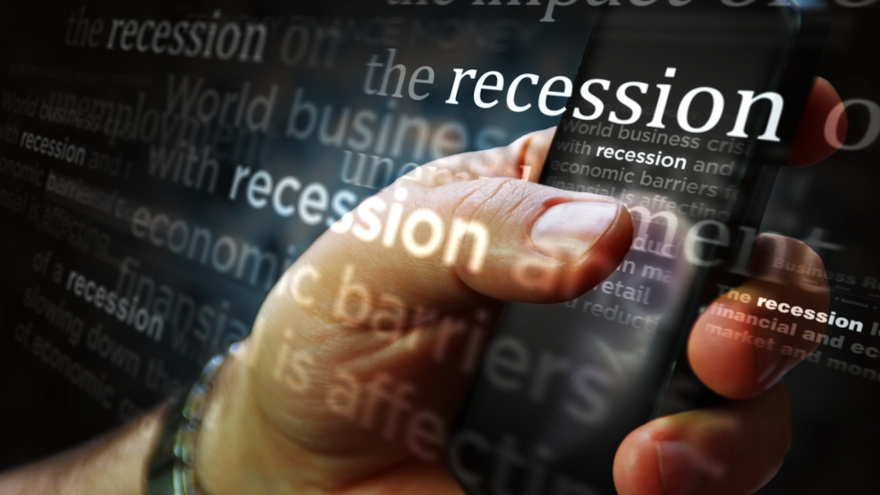Fitch sees subprime ABS deterioration abating, predicts ‘mild’ recession

Image by Skorzewiak / Shutterstock.com.
By subscribing, you agree to receive communications from Auto Remarketing and our partners in accordance with our Privacy Policy. We may share your information with select partners and sponsors who may contact you about their products and services. You may unsubscribe at any time.
A few days after S&P Global Ratings shared its perspectives about how auto securitizations are performing, Fitch Ratings offered its assessment, too, focusing on the subprime sector.
Analysts indicated Wednesday that subprime auto ABS loan performance deterioration has recently moderated in line with typical seasonal trends but remains vulnerable to recessionary pressures.
“Macroeconomic headwinds will continue to squeeze subprime borrowers, although ABS ratings stability is expected due to strong structural enhancement that provides a robust cushion for senior noteholders,” Fitch Ratings said in a news release.
Fitch recapped that delinquencies increased from historically low levels during the pandemic, peaking earlier this year, but have since declined due to seasonal factors.
Analysts then said annualized net losses (ANL) and recoveries hit their worst post-pandemic levels in February before mild seasonal rebounds.
“Originators have recently tightened underwriting standards, which may support better 2023 vintage performance relative to 2022 vintage deals,” Fitch said.
Subscribe to Auto Remarketing to stay informed and stay ahead.
By subscribing, you agree to receive communications from Auto Remarketing and our partners in accordance with our Privacy Policy. We may share your information with select partners and sponsors who may contact you about their products and services. You may unsubscribe at any time.
Analysts determined subprime delinquencies are consistent with pre-pandemic levels, matching the August 2019 peak of 5.93% in January 2023, but have since dropped 0.62% to 5.31% in July. They said that reading compares with delinquencies of 4.56% in January 2022 and 4.71% in July 2022, “although seasonal changes have improved in 2023, with declines greater and increases lower than last year.”
Fitch noticed that ANLs are trending slightly below pre-pandemic levels, with July’s ANL of 6.96% lower than those recorded in that particular month going back to 2015.
“The recent divergence between delinquency and ANL performance metrics can be partially attributed to slower delinquency-to-default roll rates. Further strain on borrower income or debt obligations may reverse this trend and drive ANL up in tandem with delinquencies,” analysts said.
Fitch also pointed out that recoveries have deteriorated notably with wholesale price softening when compared with the historically high levels observed during the pandemic. Black Book spotted another notable price decline last week.
However, at 45.5%, Fitch stated the July recovery rate is in line with July recovery rates before the pandemic.
“Subprime ABS include more used vehicles than prime auto securitizations, including older used vehicles that do not provide buyers with the desired alternative to new inventory, which continues to be in short supply,” Fitch said. “Servicers note that low reported recoveries are exacerbated by logistical logjams due to pandemic-related repo firm staffing issues that have not yet subsided, which may lead to slower recoveries and loan charge-offs prior to repo.
“A reduction in the repo backlog could improve recoveries, however additional softening of used car prices would depress recovery rates, especially for loans made at the peak of used car prices in 2021 and 2022,” analysts added.
Fitch acknowledged performance deterioration spans all vintages, but the 2022 vintage is notable given how quickly defaults initially climbed.
Analysts said the 60-day delinquency rate for 2022 vintage deals is 5.32% as of July, higher than the 4.52% for 2021 vintage deals as of July 2022 and 2.68% for 2020 vintage deals in July of 2021.
“Some lenders have responded by tightening underwriting, primarily by reducing the origination volumes in their lowest internal credit tiers,” Fitch said.
Fitch wrapped up its update by saying it is forecasting a mild recession beginning in the fourth quarter and heading into 2024, which could trigger an uptick in delinquencies and losses.
“Recession-driven increases to unemployment in addition to disposable income pressure from inflation, higher interest rates and the resumption of student loan payment obligations may negatively affect subprime loan performance, even for newer deals with recent conservative underwriting adjustments,” analysts said.
“Borrowers’ prioritization of auto loan payments and relatively low unemployment, which we expect will remain in line with the historical average in a mild recession, should help lessen pressures on asset performance,” Fitch continued.
“Subprime auto ABS ratings are supported by conservative cumulative net loss proxies and protective structural features such as non-declining credit enhancement that builds as the transaction amortizes,” Fitch went on to say.


